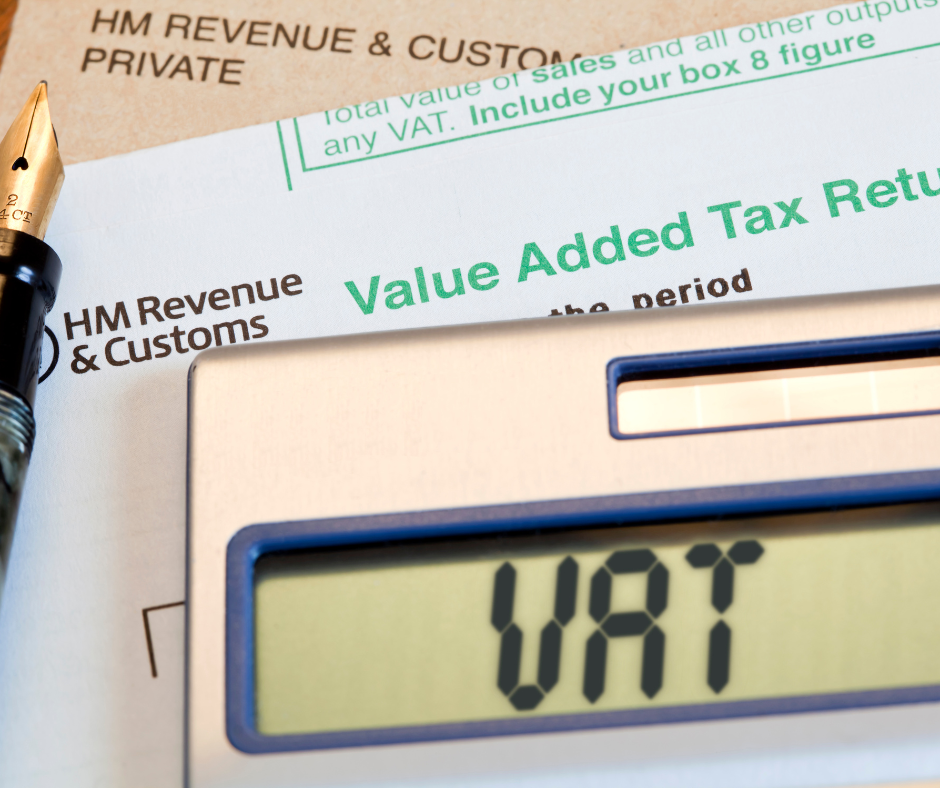VAT in the UK: Essential Do’s and Don’ts for Businesses

Value Added Tax (VAT) is a crucial component of the UK's taxation system, impacting businesses of all sizes. Comprehending the do's and don'ts of VAT is essential for UK businesses to navigate the complexities, ensure compliance, and minimize potential risks. In this blog, we will explore key principles and provide practical tips to help you understand and adhere to VAT regulations here in the United Kingdom.
The Do's:
Do register for VAT at the Appropriate Time: If your business's taxable turnover exceeds the VAT registration threshold it is mandatory to register for VAT with HM Revenue and Customs (HMRC). The VAT threshold for registration in 2023 is £85,000. This has been fixed in place since 2017, and will remain the same until 31 March 2024. Monitor your turnover closely to determine when registration becomes necessary, and promptly register to avoid penalties and legal consequences. There’s no threshold if your business isn’t based in the UK, but you must register as soon as you supply any goods and services to the UK (or if you expect to in the next 30 days).
Do maintain Accurate Records: It is vital to keep meticulous records of all business transactions, including sales, purchases, and VAT invoices. Accurate records enable you to calculate VAT liability correctly and provide evidence during audits. Employ digital accounting software to streamline record-keeping and minimize errors.
Do charge the Correct VAT Rate: Different goods and services in the UK attract various VAT rates or exemptions. It is crucial to identify the correct VAT rate applicable to your products or services and charge it accordingly. Stay updated on any changes to VAT rates or regulations to ensure compliance. Most goods and services are charged at 20%, while some like children’s car seats and home energy are charged at a reduced rate of 5%, while most food and children’s clothing is charged at 0%.
Do submit VAT Returns on Time: Timely submission of VAT returns is paramount. Ensure you submit your VAT returns and pay any VAT due to HMRC within the designated deadlines. You usually need to send a VAT Return to HMRC every 3 months. This is known as your ‘accounting period’. Late submissions can result in penalties and interest charges. The amount you owe will be worked out differently, depending on which accounting period it’s for. Utilize accounting software or seek professional assistance to ensure accurate calculations and timely submissions.
Do claim Applicable VAT Input Tax: VAT paid on business-related expenses, such as raw materials, equipment, or services, can often be claimed as input tax. Keep a meticulous record of these expenses and include them in your VAT return. By doing so, you can reduce your VAT liability and potentially receive a refund. Taxable supplies can be subject to various rates You can find out information on VAT applicable activities and rates on the GOV.UK website.
The Don'ts:
Don’t Forget to Notify Changes: Promptly inform HMRC about any significant changes in your business, such as address, ownership, or business structure. Failure to provide updated information can lead to complications and potential penalties.
Don’t Overlook Cross-Border Transactions: If your business engages in international trade, familiarize yourself with the VAT rules and regulations governing cross-border transactions. Imports and exports involve specific VAT requirements, such as reverse charge mechanisms and VAT exemptions. We can help you with professional advice to ensure compliance and avoid unnecessary complications.
Don't Underestimate VAT Liability: VAT can significantly impact your cash flow and profitability. It is crucial not to underestimate the VAT liability associated with your business activities. Properly accounting for VAT helps prevent financial strain and potential disputes with HMRC.
Don't Rely Solely on VAT Thresholds: While VAT registration thresholds exist (£85,000 currently), it is important to consider other factors. If your customers are VAT-registered businesses, voluntary VAT registration can be advantageous as it allows you to recover input tax. Assess the pros and cons of voluntary registration based on your specific circumstances.
Don't Neglect Compliance and Regular Training: VAT regulations in the UK are subject to change, with new guidelines introduced periodically. Stay informed about the latest updates and invest in ongoing training for your finance and accounting teams. Compliance is crucial to avoid penalties and maintain a good standing with HMRC.
Understanding the do's and don'ts of VAT in the UK is essential for businesses to ensure compliance and effectively manage their financial obligations. Whether you’re a large company or a sole trader, if you meet the threshold then you need to register.
By registering for VAT at the appropriate time, maintaining accurate records, and adhering to VAT regulations, businesses can navigate the complexities and minimize potential risks associated with VAT in the United Kingdom.
You can read our detailed guide to VAT registration here. It’s important that you get it right, so if you’re looking for more help, our expert team can help you with VAT Registration.
To contact us for help, you can: Call us on 0800 0198 698 or 020 8883 6161, visit https://www.paramountformations.com/contact or click the chat box on the bottom right of this page.









